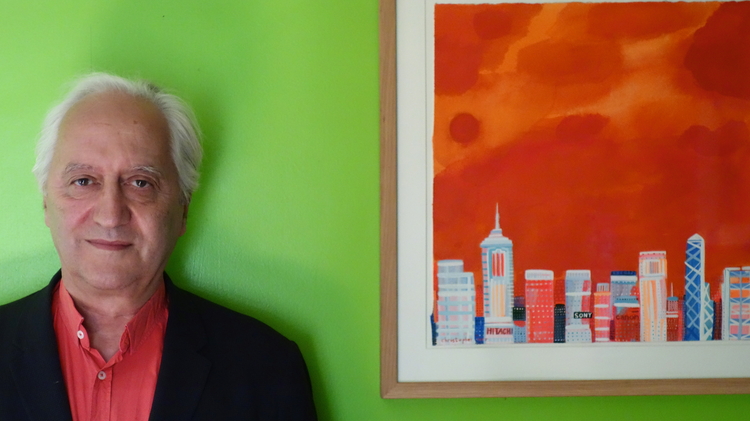
Please note: This event took place in Nov 2015
In this second session on new thinking about cities, there are contributions from: architect and writer Irena Bauman on resilience in neighbourhoods; writer and place-hacker Bradley Garrett on the need to oppose the privatisation of public space; Caroline Haynes (KPMG) on Magnet Cities; Charles Landry (Comedia) on ambitious cities; Mike Rawlinson (City ID) on legible cities; and Melissa Sterry (design scientist and futurist) on bionic cities - how nature would design a city.
Speaker biographies:
Irena Bauman is Director of Bauman Lyons Associates, an architectural practice based in Leeds. She was appointed Professor of Sustainable Urbanism at the University of Sheffield in 2012. She is a Design Review Panel member in Hull and in Sheffield and was a CABE commissioner, CABE Champion for Yorkshire and Humber, chair of CABE Regions Committee, Chair of Regional Design Review Services for Yorkshire and Humber. She is the author of How to be a Happy Architect and writes a regular column for Building Design on ethical dilemmas on architectural practice. In partnership with academics and other practitioners, she set up Leeds Love it Share it, a Community Interest Company which carries out research projects into the future needs of the city.
Bradley Garrett is a lecturer in the economy, governance and culture research group at the University of Southampton. His research interests revolve around heritage, place, urbanity, ruins and waste, ethnography, special politics, subversion and creative methods. His doctoral research was a visual ethnography with urban explorers, people who trespass into, and often photograph, off-limits urban spaces. This was one of the first multimedia theses in geography, being comprised of text, photography and video. He is the author of two books, Explore Everything: Place Hacking the City and Subterranean London: Cracking the Capital.
Caroline Haynes is a Director in KPMG's Advisory Practice and leads the firm's work on Magnet Cities. She trained and worked for many years as an economist and was previously an advisor in the UK's Work and Pensions Department and the Shadow Chancellor. She is an external advisor on the MSc in Sustainable Urban Development at the University of Oxford. She also advises clients on economic growth, city reinvention and the commercialisation of city assets.
Charles Landry is an international authority on the use of imagination and creativity in urban change. In 1978, he founded Comedia, a globally oriented consultancy working in creativity, culture and urban change. He has completed several hundred assignments for a variety of public and private clients and given workshops in over 55 countries. In 2008/09, he developed the Creative City Index. He has written several books including: The Origins and Futures of the Creative City; The Creative City: A Toolkit for Urban Innovators; and The Art of City Making.
Mike Rawlinson is a founding director of City ID, based in Bristol and New York City. He is one of the world's leading city wayfinding designers with extensive experience working on master planning, transportation, city identity and legibility projects in the UK and internationally including: Abu Dhabi (Masdar), Birmingham, Dublin, London (for TfL and London 2012), Moscow, New York and Rio de Janeiro. In particular, he is credited with developing the Legible Cities movement, pioneered in Bristol, that seeks to improve people's understanding and experience of places through the integration of urban design, information design and interaction design disciplines.
Design scientist Melissa Sterry is a world-leading authority on the science, technology and thinking that could help build a better world. Since 2010 she has been investigating the novel ways in which flora and fauna species build resilience to extreme meteorological and geological events. She is the creator and director of Bionic City, which seeks to answer the question 'how would nature design a city?', and a PhD Researcher at the Advanced Virtual and Technological Architecture Research group at the University of Greenwich.